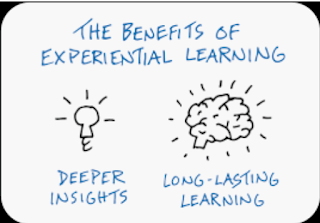One of our favorite questions in The Hive is "WHY DO WE NEED TO LEARN THIS?". We're educating our young learners to frame their experiences around that very question; to continually seek out the relevance in what they are learning each and every day both in school and in the broader scope of their life experiences. "WHY?" should be the driving force behind each of their learning experiences and their curiosity and quest for future knowledge and understanding of everything around them.
As you may recall from our last blog post, we've been delving into the motives behind early European exploration in North America. Our discoveries (no pun intended) have helped us better understand the past and how it has shaped and influenced the world we live in today. To offer an opportunity to have our learners really extend their thinking on the knowledge they have built around this topic, we asked them to consider some challenging ideas. Specifically: How has exploration shaped our world? How might the reasons for exploration have changed over time? Are there still more opportunities for future exploration? This week's guest bloggers exercise their brain muscles in a big way as they think deeply and critically about the impact of exploration in the past, present and future. This is what the "WHY?" looks like. Enjoy.
One way that exploration has shaped our world is that people have been able to bring resources to new places. People used to explore to find new land and resources and to spread Christianity. Reasons for exploration now include things like scientific research and finding cures for sicknesses and diseases. There are still lots more opportunities for future exploration like oceans that haven't been fully explored. There could be new sea creatures or plants that could help with scientific research. - "Mala"
There are still more opportunities for future exploration because there is a lot that we don't know about in space, like new planets and resources that we could use on those planets. - "Santa"
One way that exploration has shaped our world is that many more people became Christian because the motive of some explorers was to spread Christianity. Another way is that languages have been spread as well throughout different parts of the world. Exploration has changed since the 1500s. People who explore now are more interested in finding things that will help improve science, technology, and civilizations. There are plenty of opportunities for future exploration, like in space, you might be able to start new civilizations on other planets or you might find new resources on other planets that could be useful to us. -"Cheese"
I think exploration has shaped our world by explorers bringing different cultures with them when they arrived at new places and learning about new cultures in places they explored and bringing it back to their countries. There are still more opportunities for future exploration because there is a whole universe to still explore as well as oceans. If we explore those places, we might find new plants or animals that could help us. - "Lize"
One way that exploration has shaped our world is if exploration didn't happen, people might not desire new and interesting resources or technology. People would be stuck in the way that they lived a long time ago, knowing almost nothing. There would also be a lot more people dying every day due to sickness and disease because cures would not be shared. One way that reasons for exploration have changed is that more people today are interested in finding new medicines or cures for sicknesses. - "Cat"
There are still more opportunities for future exploration because there are many things to explore in space. I find space interesting and I think that you could find new resources or even things that could help make new medicine in space if we try hard to find it. - "Ritzi"
Exploration has shaped our world by bringing people to new places and having people settle and colonize in new places. People have moved around and found new places to live and they bring their culture with them when they do. This shows other people new ways to dress, introduces new foods to eat and maybe you even bring your language with you and other people start to speak that language. You also might bring resources with you and introduce them to the new place you live in. There are still more opportunities to explore - years of research and exploration in space and in the ocean! - "Soda"
Exploration has shaped our world so much since the 1500s. For example, if European explorers hadn't discovered some of the resources and materials that they did, like certain spices, then life in 2020 wouldn't be all that it is now. Those spices represented a different culture and with those spices, people could make foods that originated in different parts of the world. They were able to experience different types of foods right in their own country. Reasons for exploration have changed somewhat because now there are people who want to explore space and the deeper parts of our oceans. Some people believe there may be life on Mars and that it could help us in some way. Others believe that there are ocean plants and animals that haven't been identified yet that could benefit us in some way. There are definitely still more opportunities for future exploration. - "Glisten"










